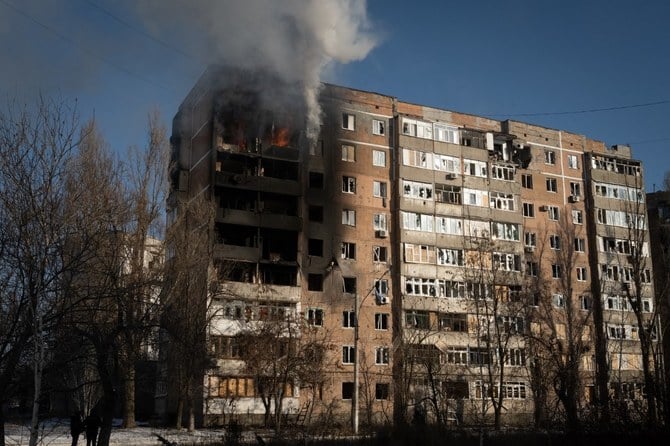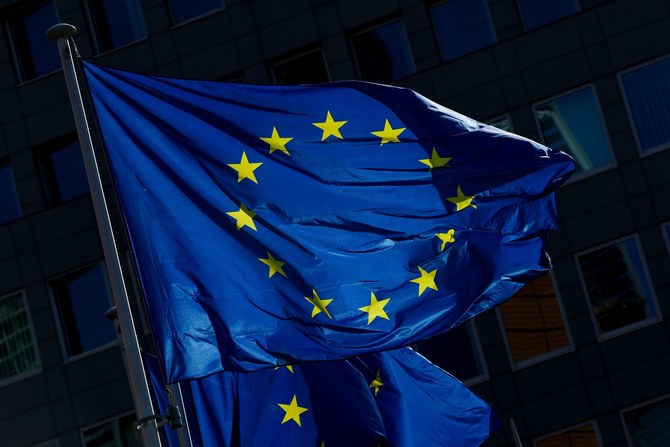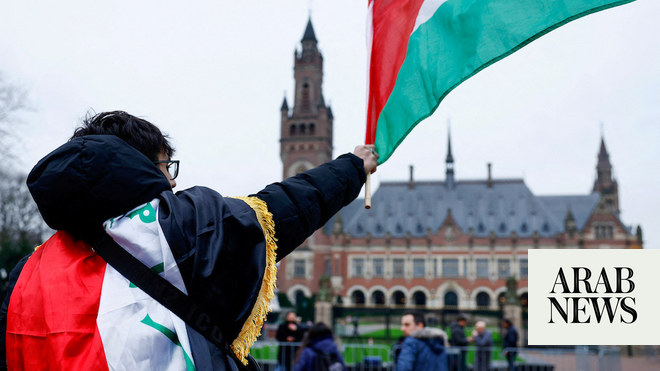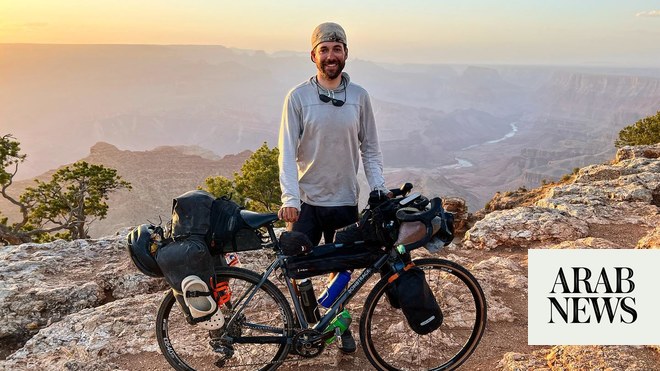
Israelis are starting to relax after another Benjamin Netanyahu-Hamas ceasefire. After 11 days of violence, Israelis can restart their lives and get out of the shelters. Next week should also see a return to pre-pandemic normality. That is welcome. But not for one second should anyone suggest this is a ceasefire and calm for Palestinians. This is the typical error of world leaders and politicians, whose energies will fade away within days if the precedent of the many previous wars on Gaza is adhered to.
Normal life and calm are never on the menu for the 5 million Palestinians living under foreign military occupation or blockade. In more than 19,700 days of occupation, have the Palestinians ever endured a single day of true peace? Ceasefires never include an end to home demolitions or evictions, night-time arrests and the humdrum daily aggression of occupation. This was superbly captured in the Oscar-nominated film “The Present” by Farah Nabulsi.
In Gaza, Palestinians venture out onto the streets, traumatized and fearful. They will continue to fight for survival. They have survived the bombing but now face the coronavirus disease, which may run rampant among them. Many fear for the 91,000 internally displaced people in Gaza, most of whom are herded in shelters at UN installations. Less than 2 percent of Palestinians in the Occupied Territories have been vaccinated, in no small part because Israel refuses to honor its legal obligation to vaccinate the people living in the areas it occupies.
Gaza’s health system was in crisis before the latest bombardment. The World Health Organization has documented 117 Israeli attacks against healthcare providers in the West Bank and Gaza since the start of Ramadan. The bombing of roads has also left ambulances unable to get to hospitals. Added to this is all the raw sewage flowing in the alleyways of refugee camps and on the roads of Gaza. Unexploded ordnance poses an extra threat.
Palestinians in Gaza will also have to handle a lack of power and water. An estimated 700,000 are affected by a loss of power and the water supply has decreased by 40 percent. Israel continues to refuse to open the crossing points that are vital for humanitarian aid and to get treatment to the wounded.
The donor community is already engaging in Band-Aid steps to offset the worst of the humanitarian crisis. It is the bare minimum required. Only ending the blockade of Gaza, opening up its economy and investing in livelihood support and infrastructure will make a genuine difference. If Palestinians in Gaza have hope and a future, then the lure of joining armed groups may be dulled.
Will the international community work to de-escalate in Jerusalem? What will be the nature of any such de-escalation? Sunday’s entry of more than 120 extremist Jews to Al-Haram Al-Sharif, flanked by heavily armed Israeli forces, hardly bodes well. The status quo agreement has to be enforced. Palestinians still face eviction in Sheikh Jarrah and the demolition of their homes in Silwan and elsewhere. Israeli police have set up checkpoints into Sheikh Jarrah. Human rights groups report that non-resident Palestinians cannot enter, but non-resident Israeli extremists can.
In the rest of the West Bank, the oppression and subjugation of Palestinians continues apace. Media coverage barely mentioned the 27 Palestinians killed there. The settlement expansion and home demolitions will continue, with no sign of de-escalation.
The international community did not have a good war. The Biden administration was pedestrian in getting out of the blocks and barely referred to Palestinian rights and suffering at all. The US was also the roadblock at the UN Security Council, blocking three resolutions. Even its post-ceasefire statement did not call for an end to the blockade of Gaza. The major European states were a little better. Most EU states are still trying to build their working relationship with the Biden team and fear irritating it at this stage.
However, certain elements of the last month showcase some positive changes. Firstly, there has been a significant sea change in the nature of the conversation in the US. Joe Biden may be the first president to have to acknowledge and consider views from Democrats advocating an approach that includes rights for Palestinians. Maybe this was why, back in early April, Secretary of State Antony Blinken told his Israeli counterpart: “Israelis and Palestinians should enjoy equal measures of freedom, security, prosperity and democracy.”
Palestinian voices are also beginning to be heard in major media outlets and not blocked or ignored. Driving this momentum is a new generation of articulate, fearless Palestinians who will not retreat or be intimidated. This is also a sign of a reversal of the fragmentation of Palestinian society, as younger civil society actors appear far more relevant than the jaded, discredited political leaders. The Palestinian Authority in Ramallah proved itself to be largely irrelevant over the last month, while Hamas’ decision to rocket Israeli civilians and place 2 million Palestinian civilians at risk of Israeli bombardment will increasingly be challenged. Was it worth it? Where is the victory among the rubble?
Secondly, the framing of this as combating a regime of apartheid has moved from a fringe term to part of the mainstream debate. Understanding the true nature of the processes on the ground is vital if one is to move toward a solution. This means that the systemic discrimination against Palestinians within Israel has to be dismantled along with the occupation.
Driving the momentum is a new generation of articulate, fearless Palestinians who will not retreat or be intimidated.
Chris Doyle
To avoid the traditional post-war Gaza failures, the international community has to break the mold. Accountability is key. The International Criminal Court (ICC) must be given full backing to investigate all parties. Full access to Gaza for the ICC, human rights groups and journalists is vital. All parties must know that, if they break the law, their day in court is coming. Secondly, stop the lip service promising to resolve the underlying issues and get on and do it. Occupation is conflict and an aggression against Palestinians every hour of every day.
This requires negotiations, but not those based on freezing or perpetuating the occupation. The US cannot monopolize the role as broker, given its partisan nature and historic failures. The negotiations must be about implementing the laws and resolutions the international community has already passed. That must be the fundamental foundation for a true and lasting peace that both peoples need and can cherish.
Chris Doyle is director of the London-based Council for Arab-British Understanding. Twitter: @Doylech
Disclaimer: Views expressed by writers in this section are their own and do not necessarily reflect Arab News" point-of-view












